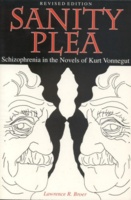Lawrence R. Broer
Showing 1-3 of 3 items.
Sanity Plea
Schizophrenia in the Novels of Kurt Vonnegut
University of Alabama Press
In this revised edition of a volume originally published in 1989, Lawrence Broer extends his comprehensive critique of the body of writing by Kurt Vonnegut.
- Copyright year: 1994
Rabbit Tales
Poetry Politic John Updike
Edited by Lawrence R. Broer
University of Alabama Press
These essays show the Rabbit novels to be a carefully crafted fabric of changing hues and textures, of social realism and something of grandeur, worthy of Dickens, Thackeray, and Joyce.
- Copyright year: 2000
Hemingway and Women
Female Critics and the Female Voice
Edited by Lawrence R. Broer and Gloria Holland
University of Alabama Press
Female scholars reevaluate gender and the female presence in the life and work of one of America’s foremost writers
Ernest Hemingway has often been criticized as a misogynist because of his portrayal of women. But some of the most exciting Hemingway scholarship of recent years has come from women scholars who challenge traditional views of Hemingway and women. The essays in this collection range from discussions of Hemingway’s famous heroines Brett Ashley and Catherine Barkley to examinations of the central role of gender in his short stories and in the novel The Garden of Eden. Other essays address the real women in Hemingway’s life—those who cared for him, competed with him, and, ultimately, helped to shape his art. While Hemingway was certainly influenced by traditional perceptions of women, these essays show that he was also aware of the struggle of the emerging new woman of his time. Making this gender struggle a primary concern of his fiction, these critics argue, Hemingway created women with strength, depth, and a complexity that readers are only beginning to appreciate.
Ernest Hemingway has often been criticized as a misogynist because of his portrayal of women. But some of the most exciting Hemingway scholarship of recent years has come from women scholars who challenge traditional views of Hemingway and women. The essays in this collection range from discussions of Hemingway’s famous heroines Brett Ashley and Catherine Barkley to examinations of the central role of gender in his short stories and in the novel The Garden of Eden. Other essays address the real women in Hemingway’s life—those who cared for him, competed with him, and, ultimately, helped to shape his art. While Hemingway was certainly influenced by traditional perceptions of women, these essays show that he was also aware of the struggle of the emerging new woman of his time. Making this gender struggle a primary concern of his fiction, these critics argue, Hemingway created women with strength, depth, and a complexity that readers are only beginning to appreciate.
- Copyright year: 2003
Stay Informed
Subscribe nowRecent News



